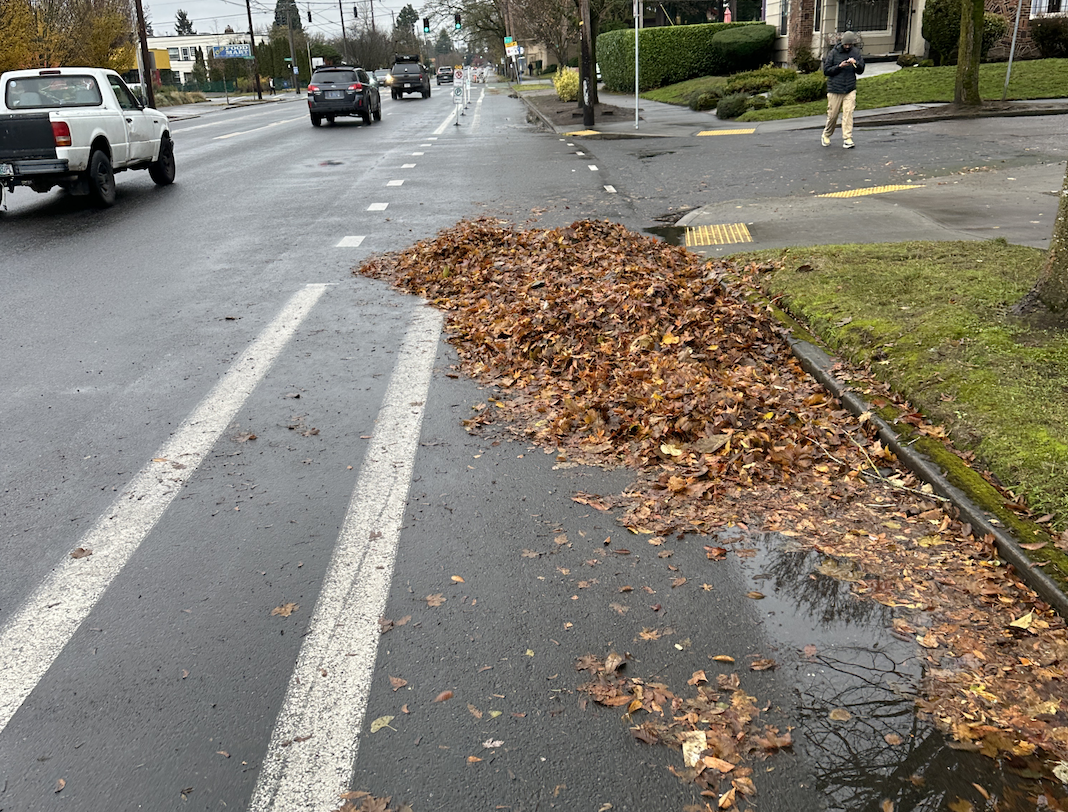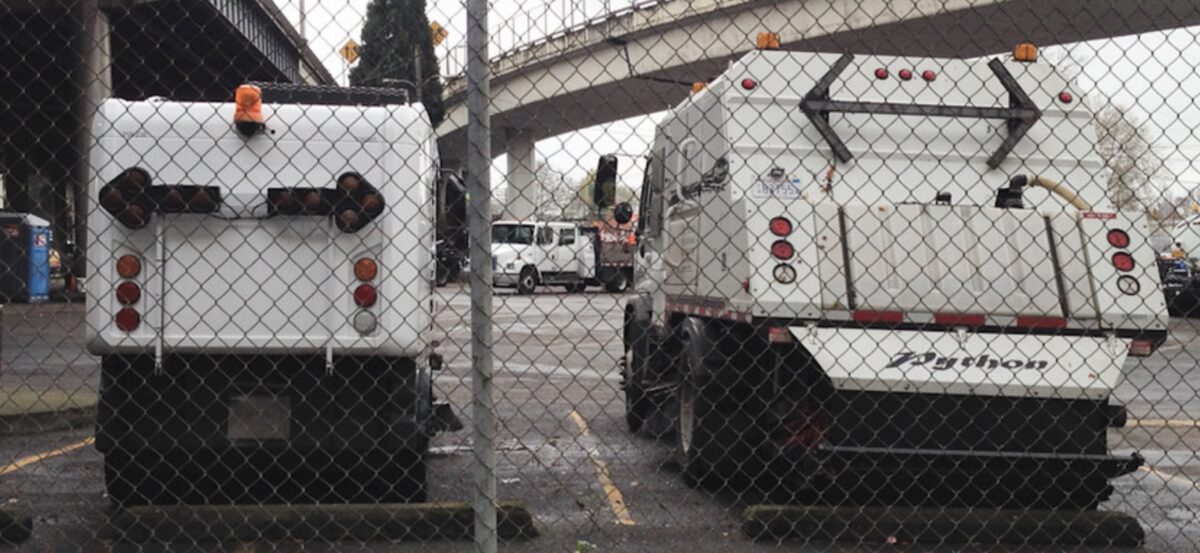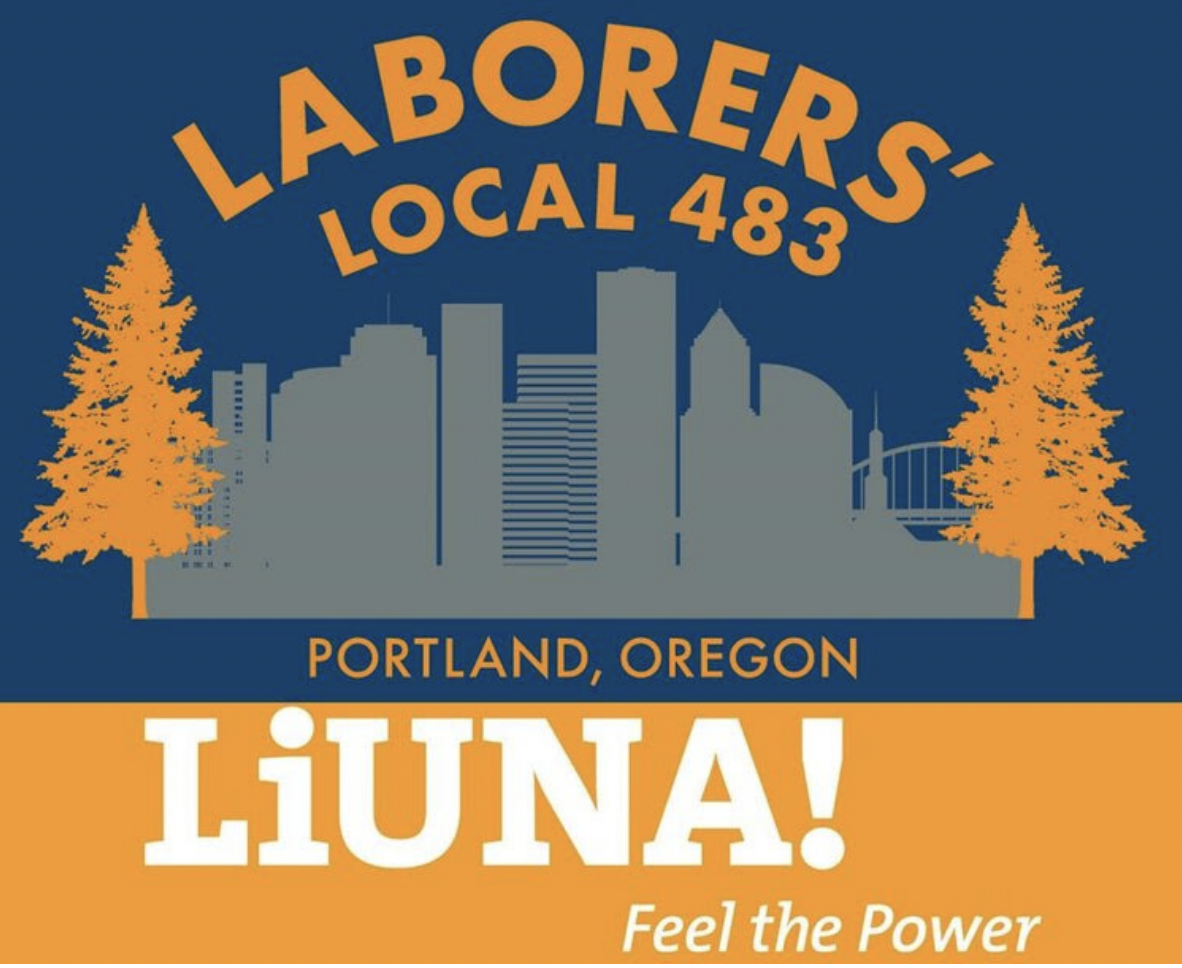“Unless there is a really dramatic change…a strike is very likely.”
-James O’Laughlen, Laborers’ Local 483
A few months ago, some Portland Bureau of Transportation maintenance staffers made their grievances with the city public, sounding the alarm on a crisis that had been simmering for years.
“Many of my coworkers and myself work 70 to 80 hours a week during weather emergencies,” PBOT traffic crew leader Andrew Sterling testified at a September Portland City Council meeting. “Then we have to pick up where we left off for maintenance operations.”
Sterling is the Vice President of Laborers Local 483, the union that represents PBOT maintenance workers. The union had already been running into trouble negotiating a new Portland City Laborers’ (PCL) contract with the city back in September, and frustrations were brewing. Now, almost three months later, the situation still hasn’t improved — and may be coming to a breaking point.
State of the union

If city maintenance problems were evident in the early autumn when Sterling gave his testimony, they’re glaringly obvious now that winter has come. From bikeways covered in drain-clogging leaves that create huge lakes of rainwater to streets coated in slippery, dangerous ice to broken shards of glass filling up the new Division St bike lanes, hazards abound.
Portlanders aren’t staying silent about their frustrations with the status of our streets. It seems like every day that social media is abuzz with people citing their concerns about the state of Portland’s streets — especially the ones designated for people biking and using active transportation. Earlier this week, bike advocate Cathy Tuttle tweeted a video that showcased the dire state of the new protected Broadway bike lanes downtown (the next day, it was cleared). In some cases, people are deciding to take matters into their own hands, taking to the bikeways with rakes and leaving with bags of debris.
Advocates don’t mind doing a bit of volunteer grunt work. But it seems as if these maintenance duties have fallen on the shoulders of individuals just trying to use bike lanes as intended. What’s going on here?
PBOT points to the ever-expanding, $4.4 billion maintenance backlog which the transportation bureau simply doesn’t have the budget capacity to handle right now. But Local 483 union representatives say a lot of it has to do with the way maintenance staffers are treated. Department morale is subzero and getting worse.
“People are overtaxed and burnt out, and it’s been that way for years,” James O’Laughlen, Field Representative & Organizer for Local 483, told me in a phone call earlier this week.
When I talked to O’Laughlen in September, his message was much the same. Now, he says the fact that tension between the union and the City of Portland has only grown stronger in the last three months is cause for real alarm.
The PCL bargaining team lists their goals for the new contract as follows:
● Generous across-the-board pay raises that honor our members’ sacrifices and keep up with the rising cost of living
● Targeted class wage Increases to retain and recruit in demand workers whose positions are understaffed and underpaid.
● Equitable and Enforceable Contract Language that will hold the city to their word and force them to live their stated principles.
● Improved Safety with more resources and new policies that keep our members safe while they serve the city through crisis after crisis
According to O’Laughlen, the city isn’t being upfront with the financial package they’re willing to offer. The PCL bargaining team is asking for 10% wage increases for all maintenance division staff, which includes cost-of-living adjustments (COLAs) appropriate for the dramatic inflation we’ve seen since the last time the union updated their contract.
“They’ve left us in limbo,” O’Laughlen said.
O’Laughlen said he thinks there could be several reasons why city negotiators haven’t tried harder to meet PCL requests.
“They’re either playing some kind of game and thinking they can benefit from it in negotiations, or they just don’t prioritize this kind of work over other things on their plate,” he said. “It’s the same disregard and disrespect for our members and what they’ve been doing.”
As of November, there were dozens of staff vacancies within the maintenance division. Most notably, there were 36 vacancies in the Utility Worker II position, which O’Laughlen described as the “backbone position of PBOT,” who work on everything from the emergency crews to street repair to sewer cleaning.
As you can imagine, all of these vacancies are spreading workers thin — and are a major reason why our streets are in the shape they’re in.
“We’re stuck in a loop of crisis, which is a bad way to do anything — but particularly city infrastructure,” O’Laughlen told me. “We need to have a routinized process that stays ahead of the schedule instead of falling behind.”
What a strike would look like
The next bargaining session the PCL team has scheduled with the City is on December 20th. O’Laughlen said they’re not optimistic.
“Unless there is a really dramatic change in what they’re willing to offer and how they’re willing to engage in the conversation…a strike is very likely,” he said.
A maintenance staff strike could occur as soon as February. O’Laughlen said that if you thought things were bad now, just you wait. A strike would mean no employees to clear out sewers, sweep the streets, clear ice and more. People would notice the effect immediately, and it would also hinder the city’s ability to get larger projects done even after things have cooled down.
As far as the more than $4 billion backlog is concerned, O’Laughlen said it’s no excuse for abandoning the needs of frontline staff.
“The resources for what we’re asking are absolutely there. We’re the fundamental foundation that you have to built upon for those other aspects of the work,” he said. “If our workers aren’t there with sufficient numbers and sufficient talent, nothing gets accomplished. These are the bills you have to pay in order to get to anything else.”
However, O’Laughlen is hopeful that change within the city government will help with the crisis in the long-term.
“Ideally charter reform leads to more ownership of the issues we’re facing so it doesn’t fall just on one commissioner,” O’Laughlen said. (Former PBOT Commissioner Jo Ann Hardesty indicated a similar line of thinking during her meeting with the Bicycle Advisory Committee earlier this week.)
In the meantime, O’Laughlen said employees have to advocate for themselves and the integrity of the city. It hasn’t been easy.
“Our folks are civil servants. The pride they take in providing these services to the city is a major part of why they do what they do,” O’Laughlen told me. “We hoped that bargaining would restore that pride. But it’s been the opposite.”





